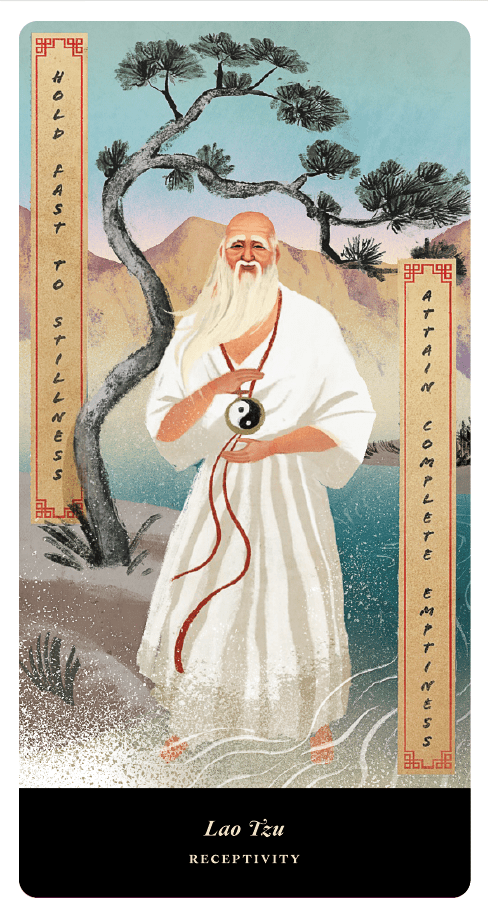Lao Tzu | Attain Complete Emptiness Hold Fast To Stillness 571 BCE CHINA 5th CENTURY BCE CHINA
Lao Tzu is a philosopher of receptivity. He is the founder of Taoism and teacher of the Tao. “Tao” means way or path in Chinese. For Lao Tzu, the way consists in effortless and spontaneous action in harmony with nature. In Taoist cosmology, humans are born from nothing and return to nothing. This nothing is the Tao. The Tao is the life-force that flows through everything: past, present, and future. It allows each thing to become itself and thrive according to its own nature. Taoists believe that life is simple and that nature knows best. We swim against the current when we fight the flow of nature and seek to control or force things. By overthinking we make things complex. This is why Lao Tzu asks us to forget what we think we know and follow the path of simplicity. “In pursuit of knowledge, every day something is added. In the practice of the Tao, every day something is dropped. Less and less do you need to force things, until finally you arrive at non-action. When nothing is done, nothing is left undone. True mastery can be gained by letting things go their own way. It can’t be gained by interfering.”

